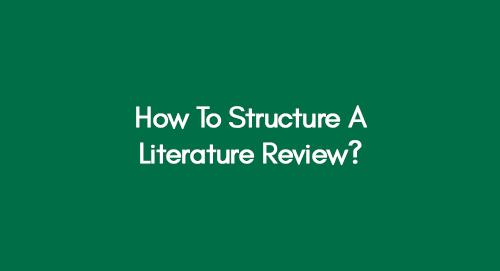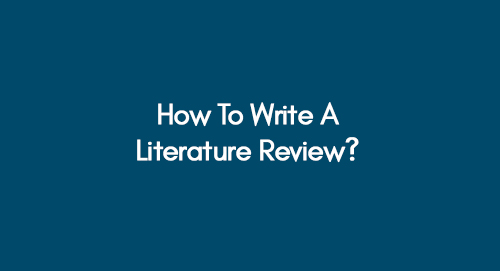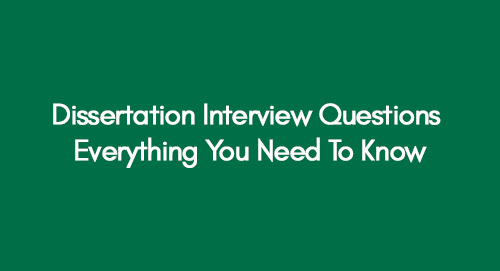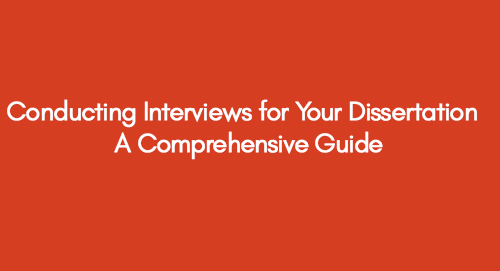
How to Write an Impactful Personal Statement for Master’s Application?
October 27, 2022
How to Structure a Literature Review: Scholarly Tips and Techniques
October 27, 2022Many students struggle with how to write an effective literature review, making it a topic of high demand. If you find yourself among those seeking guidance, this article is tailored to meet your needs.
Discover Current Dissertation Topics Related to Your Domain Here
Find Interesting Examples of Dissertations Here
To embark on writing a literature review, it is vital to familiarize yourself with relevant literature within your field of study. This entails locating and organizing pertinent information in a logical and systematic manner. While this task can be challenging, it is essential to note that the purpose of a literature review is to present a comprehensive overview of existing research rather than pass judgment on individual studies.
In this blog post, you will learn how to write a literature review that meets the expectations of academic journals.
- What is a literature review, and why is it important to academic writing?
- How do you go about finding relevant sources for your review?
- What are the key elements of a good literature review?
- How do you structure your review so that it is clear and concise?
- What common mistakes do students make when writing a literature review?
- How can you improve your critical thinking skills when reviewing sources for your paper?
Learn Expert Tips and Techniques Related to Literature Review Here
What is a Literature Review?
A literature review is a critical component of scholarly research, summarizing the existing body of knowledge on a specific subject. It plays a crucial role in informing future research directions and providing a contextual foundation for interpreting research findings.
How to Write a Literature Review?
When writing a literature review, it is important to remember that it should not simply be a summary of the existing body of work. Rather, it should critically assess the work and provide your initial analysis. To do this effectively, you must:
1) Select a topic
2) Search the existing literature
3) Critically assess the existing body of work
4) Synthesize the findings into your original analysis.
5) Offer recommendations for further research.
Find More Details on Writing Literature Review Here
The following focal points must be kept in mind to write a flawless literature review for your research work:
1. Establishing a Clear Focus
Initiating the process of writing a literature review entails determining a specific focus. This could involve selecting a particular topic, such as the influence of social media on body image, or opting for a broader scope, such as exploring the advantages of organic foods. Once the focus is defined, the subsequent step involves gathering relevant sources to support your review.
2. Locate Credible Scholarly Sources
The subsequent phase involves sourcing scholarly materials that align with your chosen focus. These valuable resources encompass journal articles, books, and various academic publications. It is crucial to prioritize the utilization of reputable sources that maintain a high level of credibility, integrity, and academic rigour within your literature review.
3. Engage in Note-Taking
Once you have identified pertinent sources, it is essential to engage in comprehensive note-taking. Record the significant points or ideas you intend to incorporate into your literature review. Additionally, diligently document the author's name, publication year, and other relevant information for each source to ensure proper referencing and citation within your review.
4. Structure Your Literature Review
Having diligently taken notes on your selected sources, the next step entails organizing your literature review in a coherent manner. Initiate this process by clustering together sources and ideas that exhibit similarities. Subsequently, arrange these sources either chronologically or thematically, depending on the most appropriate approach for your review. Lastly, compose succinct paragraphs that encapsulate the essence of each source, highlighting its significance in relation to your predetermined focus.
5. Craft Your Literature Review
With the organizational framework in place, it is now time to embark on the actual writing of your literature review. Commence this process by introducing your chosen topic and furnishing the reader with essential background information. Subsequently, present your key arguments, substantiating them with compelling evidence extracted from your curated sources. Lastly, bring your literature review to a close by summarizing the main points and engaging in a thoughtful discussion about their implications for future research endeavours.
Learn new Tips on Writing a Literature Review for Dissertations Here
Get Expert Help in Writing a Literature Review with Our Professional Services Here
Expert Suggestions for Conducting Your Literature Review
The following expert suggestion can help you complete your work as early as possible:
1) Start with a broad search of the existing literature and then narrow your focus as you find more specific works.
2) Evaluate each source critically before including it in your review. Not all sources are created credible.
3) Use citation management software, such as Zotero, EndNote or RefWorks, to keep track of your sources as you find them. It will save you time in the long run when you are ready to write your paper.
4) Be sure to consult with your professor about what style guide to use (APA, MLA, etc.) as well as how they would like you to format your literature review (e.g., chronological order, thematic order, etc.).
5) As you read, note any gaps in the existing body of work that your research could help to fill. These gaps can serve as the focus of your paper.
6) Finally, don’t forget to proofread your paper before submitting it! A well-written literature review is critical to receiving a good grade on your research paper.
How Does A Literature Review Vary from Essay Writing?
Below, we will mention some key differences between the literature review and the essay:
| Features | Literature review | Essay |
| Purpose | Assess what is already known about the topic, how well it is researched, and where future study should be focused. | To showcase your knowledge of the subject, develop your perspective, and persuade the reader of it by giving a well-reasoned response that is backed up by proof from the study you have done. |
| Content | An analysis of one or more works. It can be in reaction to a stimulus or inquiry to focus the review and limit the scope of the research. | An argument in response to a prompt or query on a certain subject. Aspects of a subject are discussed, along with justifications and examples. |
| Structure | It differs significantly but often requires a Heading, a Body, and a Conclusion (including if it forms part of a longer text). The literature review's primary arguments should be organized chronologically, with supporting details illustrating how the sources relate to one another and further understanding of the subject. | Body, Introduction, and Conclusion Concepts should be used to group ideas based on how they advance the main point of the argument. |
| Critical Approach to Sources | The writing's focus is its sources and literature. | The sources are cited as support for the claim. |
Conclusion
A literature review is an important component of academic writing. It surveys the existing body of work to assess the current state of knowledge on a given topic. Doing so provides a framework for further research and study. A literature review can be a stand-alone paper or part of a larger research project. In either case, its purpose is to survey the existing body of work critically.
Writing a literature review can be difficult, but with these guidelines, it doesn't have to be! If you need help along the way, don't hesitate to ask for assistance from your supervisor or a librarian or Contact Premier Dissertations to write a comprehensive literature review for your dissertation or research paper.
Explore the following resources to learn more about how to write a literature review.
Get 3+ Free Dissertation Topics within 24 hours?


























